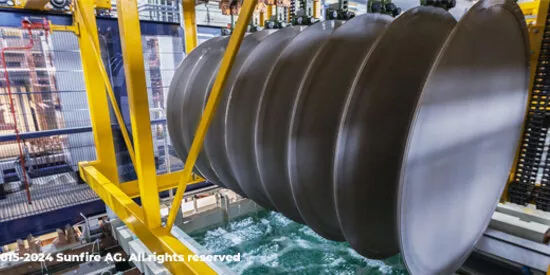
Passive funds actively sponsor sustainability
It’s an irony that although most ETFs are passively managed, they are at the center of an upsurge in shareholder activism around corporate sustainability. Not only are ETFs dedicated to environmental, social and governance (ESG) themes gathering assets fast, but also ETFs in general are stepping up their engagement with companies.
Lured by the combination of simplicity and low-cost, investors are flocking to ETFs, making them the fastest-growing area of asset management. But within Europe’s ETF universe, ESG-dedicated funds are the most rapidly expanding niche of all.
Mainstream ETFs, too, are embracing ESG. For many years, they did not exercise their ownership rights, but they are becoming increasingly active, engaging with companies on topics as diverse as executive remuneration, gender diversity and climate change. Arguably, ETFs are becoming major agents of change.
“There is much more discussion of non-financial issues,” observes Vincent Dufief, CSR Investor Relations Manager, at the French oil company Total SA. “In particular, our dialogue with passive investors on ESG has risen dramatically. Two years ago, there was no engagement with these investors.This dialogue can be helpful to us. For example, we have approved the Task Force on Climate-related Financial Disclosures because we thought it was good for our investors to have disclosure.”
Fast-growing SRI funds
Illustrating the popularity of ESG-themed ETFs, in 2018 they were the fastest growing part of the ETF universe. They attracted Euro 4.0 billion in net new assets, according to research by Lyxor. That lifted their total assets to Euro 10.1 billion, a growth rate of 45%. While only about 1.6% of Europe’s total Euro 633 billion ETF market, they accounted for a more significant 9% of net inflows.
For comparison, Europe’s mutual funds have about Euro 135 billion in active funds with an explicit socially responsible investment (SRI) objective and a further Euro 35 billion in SRI index funds. So, ETFs are a small part of this total but they are growing faster, with the prospect of becoming a greater proportion of the total every year.
ETFs are arguably the perfect vehicle for sustainable investment. Their low costs democratize access to sustainable investments and they tend to track indices built on intensive research in areas such as green bonds or gender equality. Many ESG-themed ETFs rely on rating agencies or independent research teams to evaluate the companies with the best ESG performance, in which they then invest.
What’s more, younger generations of investors have proved more likely to invest in ETFs than their elders. Again, this trend suits sustainable investing as the young are the most concerned by global warming and other sustainability issues, and they are also the investors of the future, through both their own savings and transfer of wealth.
“ETFs are based on transparency and disclosure, which fits completely with the ESG approach,” says François Millet, Head of ETF & Indexing Products, Lyxor Asset Management. “Also, they suit the millennial generation that wants to make a difference with its savings.”
More assertive managers
Testifying to the uptick generally in ETF managers’ activism, there has been a sharp rise in demand for meetings on so-called non-financial issues, including governance topics such as executive remuneration, climate change and business ethics.
Lyxor Asset Management’s activities are a case in point. In 2018, Lyxor attended 200 general meetings and analyzed about 2,600 issues. It opposed about 20% of the resolutions and voted against at least one item at 80% of the general meetings. In 2019, Lyxor expects to be even more active, attending 300 general meetings and analyzing about 4,000 issues.
“As passive management focuses on replicating an index for minimal fees, devoting resources to analyzing and monitoring ESG factors was not a high priority a few years ago. But trends change. ETFs now account for 20% of funds worldwide and the three largest index fund managers worldwide own about 10% of the capital of European companies and 15-20% of the capital of US companies. In this context, we have a fiduciary responsibility to create value for the long term, which includes ESG issues.” explains Florent Deixonne, Head of Sustainable & Responsible Investments, Lyxor Asset Management.




